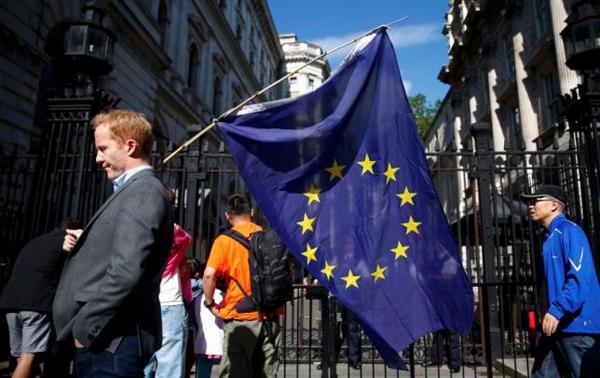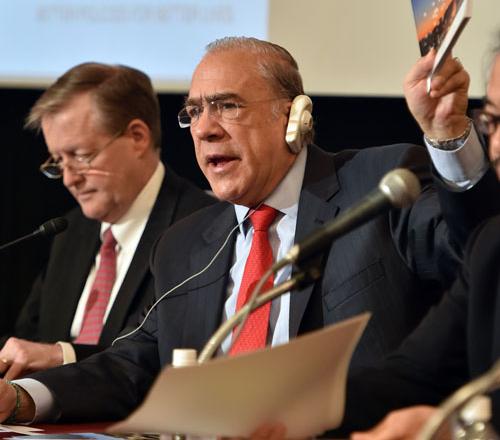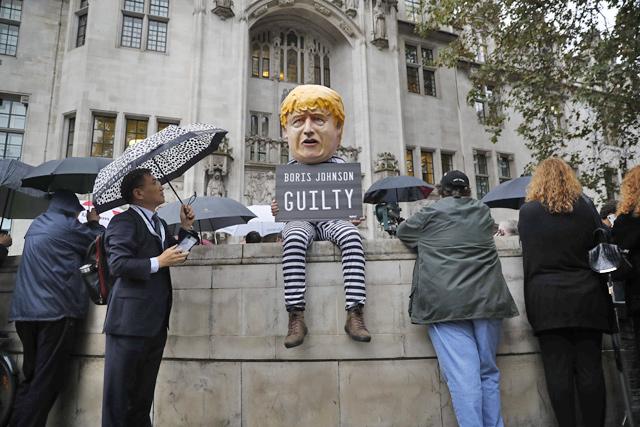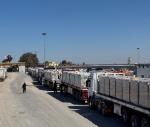You are here
Brexit pushes OECD to suspend economic indicators
By AFP - Jul 11,2016 - Last updated at Jul 11,2016

A man carries an EU flag, after Britain voted to leave the European Union, outside Downing Street in London, June 24 (Reuters photo)
PARIS — The Organisation for Economic Cooperation and Development (OECD) said Monday it is suspending for two months its composite leading indicators (CLIs) designed to flag turning points in economic activity due to volatility heightened by Brexit.
The OCED compiles the indicators to provide a useful tool to measure expectations of future economic activity, but it said "extreme volatility such as the financial crisis and the recent euro area crisis" reduced their effectiveness.
They cannot account "for significant unforeseen or unexpected events, for example natural disasters, such as the earthquake, and subsequent events that affected Japan in March 2011", which likewise saw CLI data suspended for two months.
"The outcome of the recent referendum in the United Kingdom is another such significant unexpected event, which is affecting the underlying expectation and outturn indicators used to construct the CLIs regularly published by the OECD," the organisation said.
The OECD added that, in the volatile post-referendum context, the underlying data that capture subsequent and potentially significant changes in expectations will not be available until early September.
"As a consequence, to avoid providing an inaccurate and potentially misleading assessment of the short to medium term outlook, it has been decided to suspend the release of the OECD CLIs until 8 September 2016."
Following the referendum, the OECD forecast "major consequences for the UK itself, the EU and the international community”.
It added that, although it would not have recommended a Leave vote "the focus must now shift to dealing with the outcome of this democratic process" to ensure the transition period is as smooth as possible.
Related Articles
The head of the Organisation for Economic Cooperation and Development (OECD) on Wednesday credited a wave of loose monetary policy for preventing a global economic collapse, but warned it was now up to governments to lift growth and safeguard their economies.
LONDON — The ruling by Britain's supreme court that Prime Minister Boris Johnson unlawfully suspended parliament is a huge blow to his autho
PARIS — The world risks getting caught in a low-growth trap, denting the future of generations to come, unless governments step up spending

















